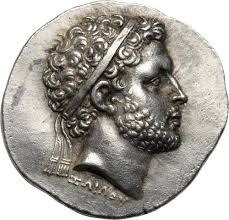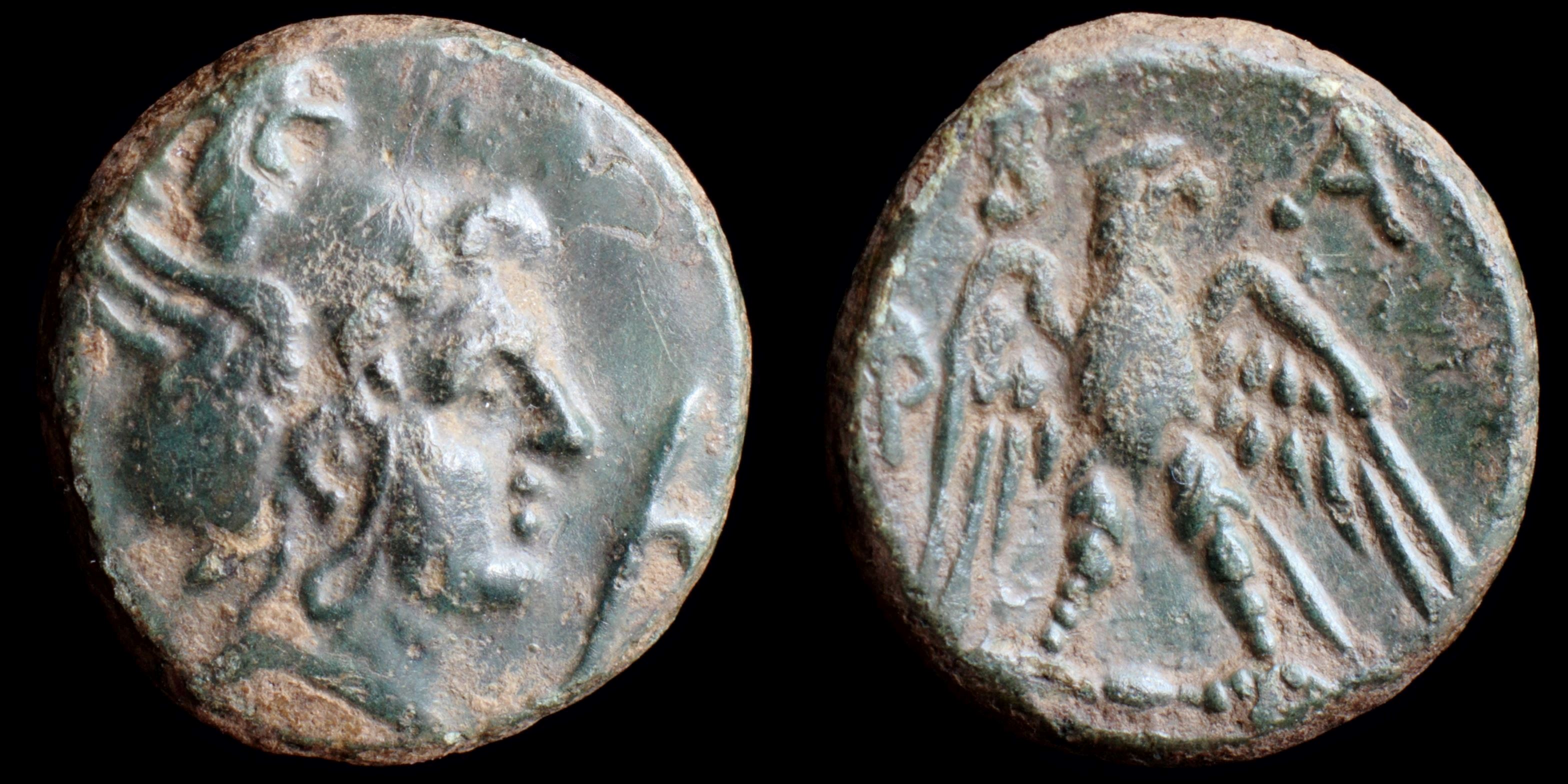Perseus was the last king (Basileus) of the Antigonid dynasty, who ruled the successor state in Macedon created upon the death of Alexander the Great. He also has the distinction of being the last of the line, after losing the Battle of Pydna on 22 June 168 BC; subsequently Macedon came under Roman rule.
He was the son of king Philip V of Macedon and a concubine, probably Polycratia of Argos. He therefore feared that the throne might pass on his legitimate younger brother Demetrius, not least due to interference from the Romans, who considered their former hostage Demetrius a true friend. Perseus thus staged a plot to make their father believe that his brother was a traitor, and as a result Philip had Demetrius executed.
In 179 BC Philip V of Macedon died and Perseus took the throne. Although his role in killing Demetrius had not endeared him to the Romans, one of his first acts on becoming king was to renew the treaty with the Republic. Yet, Perseus' other actions troubled the Senate. Soon Rome and Perseus went to war in the Third Macedonian War (171-168 BC). Although Perseus had some initial success, the war ended with the King's surrender to the Roman general Lucius Aemilius Paullus after his decisive defeat at the Battle of Pydna, and his eventual imprisonment in Rome.
The Antigonid kingdom was dissolved, and replaced with four republics.
He was the son of king Philip V of Macedon and a concubine, probably Polycratia of Argos. He therefore feared that the throne might pass on his legitimate younger brother Demetrius, not least due to interference from the Romans, who considered their former hostage Demetrius a true friend. Perseus thus staged a plot to make their father believe that his brother was a traitor, and as a result Philip had Demetrius executed.
In 179 BC Philip V of Macedon died and Perseus took the throne. Although his role in killing Demetrius had not endeared him to the Romans, one of his first acts on becoming king was to renew the treaty with the Republic. Yet, Perseus' other actions troubled the Senate. Soon Rome and Perseus went to war in the Third Macedonian War (171-168 BC). Although Perseus had some initial success, the war ended with the King's surrender to the Roman general Lucius Aemilius Paullus after his decisive defeat at the Battle of Pydna, and his eventual imprisonment in Rome.
The Antigonid kingdom was dissolved, and replaced with four republics.

(1)
Perseus

An
AE
unit
struck 179-168 BC
in
Pella
|
Amphipolis
Obverse: head of Perseus (hero) right wearing winged helmet peaked with griffin head; harpa right
Reverse: eagle facing, head right; B_A / (ΠEP) / A (ΓH)
Diameter:
16.5 mm
Die Orientation: -
Weight: 4.5 g
Die Orientation: -
Weight: 4.5 g
No notes for this coin
SNG Alpha Bank 1135-42 var.
